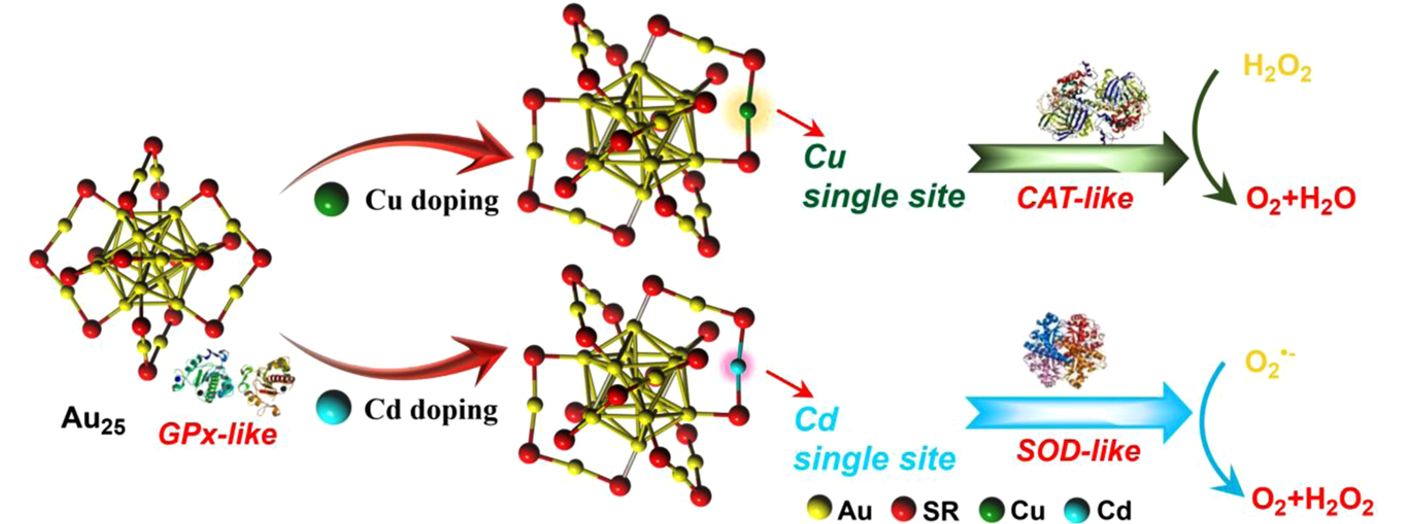
Artificial Enzyme
Compared with natural enzymes, artificial enzymes show better catalytic activity and higher stability, and it is easier to improve catalytic properties through surface modification, atomic doping, etc. We have obtained a series of nanomaterials with multi-enzyme activities (including but not limited to cluster materials with atomic precision), such as gold nanoclusters, single-atom nanozymes, etc. (Nat. Comm., 12, 2021; Sci Adv, 7, 2021), we study its catalytic properties and applications in major diseases (Nano Lett, 21, 2021).
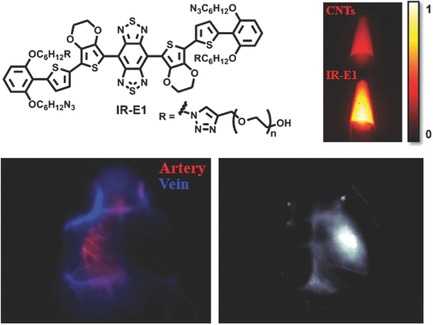
Bioimaging
Compared with NIR-I imaging (750-900 nm), deep tissue fluorescence imaging in the second near infrared window (1,000-1,700 nm) is useful for non-invasive in vivo imaging at sub-centimeter tissue depth with sub-10 micron spatial resolution due to reduced photon scattering by biological tissues at longer wavelengths. We proposed to use a large conjugated system as electron donor for enhanced fluorescence. We designed the bright fluorescence molecule in second near infrared window (1100-1700 nm), and achieved high resolution tumor imaging (Adv. Mater. 28, 2016), and the traumatic brain injury(Adv. Mater. 31, 2019).
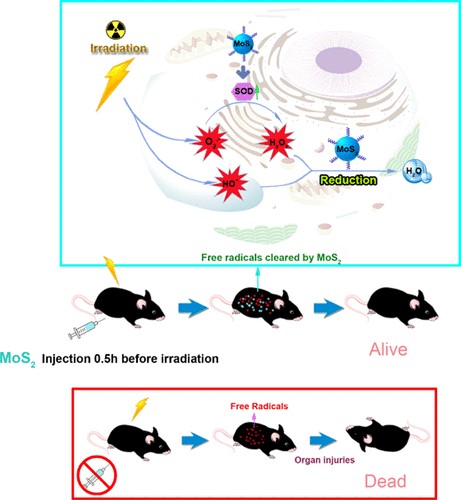
Nanomedicine
Radiotherapy has been considered as part of the treatment regime following tumor surgical removal. We designed a series of Au clusters CT contrast agent, such as Au10, Au25, Au33 which can achieve ultrahigh tumor specificity (Adv. Mater., 26 (2014) 4565, Adv. Healthcare Mater., 3 (2014) 133), highly efficient cancer radiation (Sci. Rep., 5 (2015) 8669, Biomaterials, 33 (2012) 4628) and renal clearance and low toxicity (Biomaterials, 33 (2012) 6408, Small, 11 (2015)1683).We proposed that radiation physics combined with molecular engineering can be used as a designed strategy for screening high-performance radioprotective biomaterials during radiation therapy (ACS Nano, 10, 2016; ACS Biomat. Sci. Eng., 3, 2017).
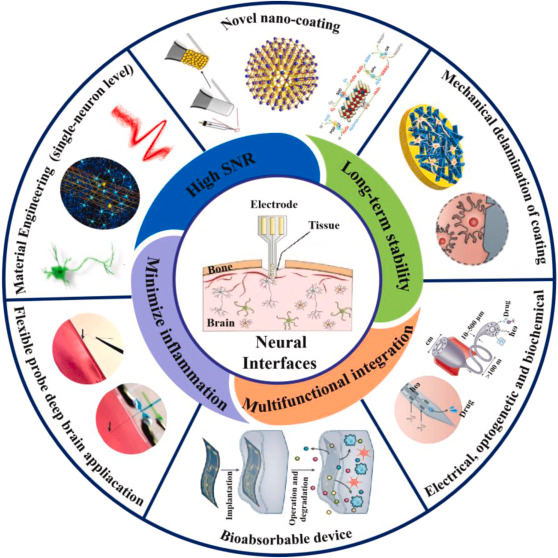
Neural Electrode
We designed and constructed highly efficient catalyzed artificial enzyme electrodes to study the electronic interface transport process at the interface between electrode materials and biological tissues and the regulation of inflammation at the tissue interface. We are committed to solving the problems of poor biocompatibility, low sensitivity, and difficulty in long-term acquisition of nerve implant electrodes. We tend to establish a new technology system for the design and application of artificial enzyme electrodes, promote the clinical transformation of implantable electrodes, and provide theoretical and technical support for other biological implant materials (Biosens. Bioelectron. 170, 2020).
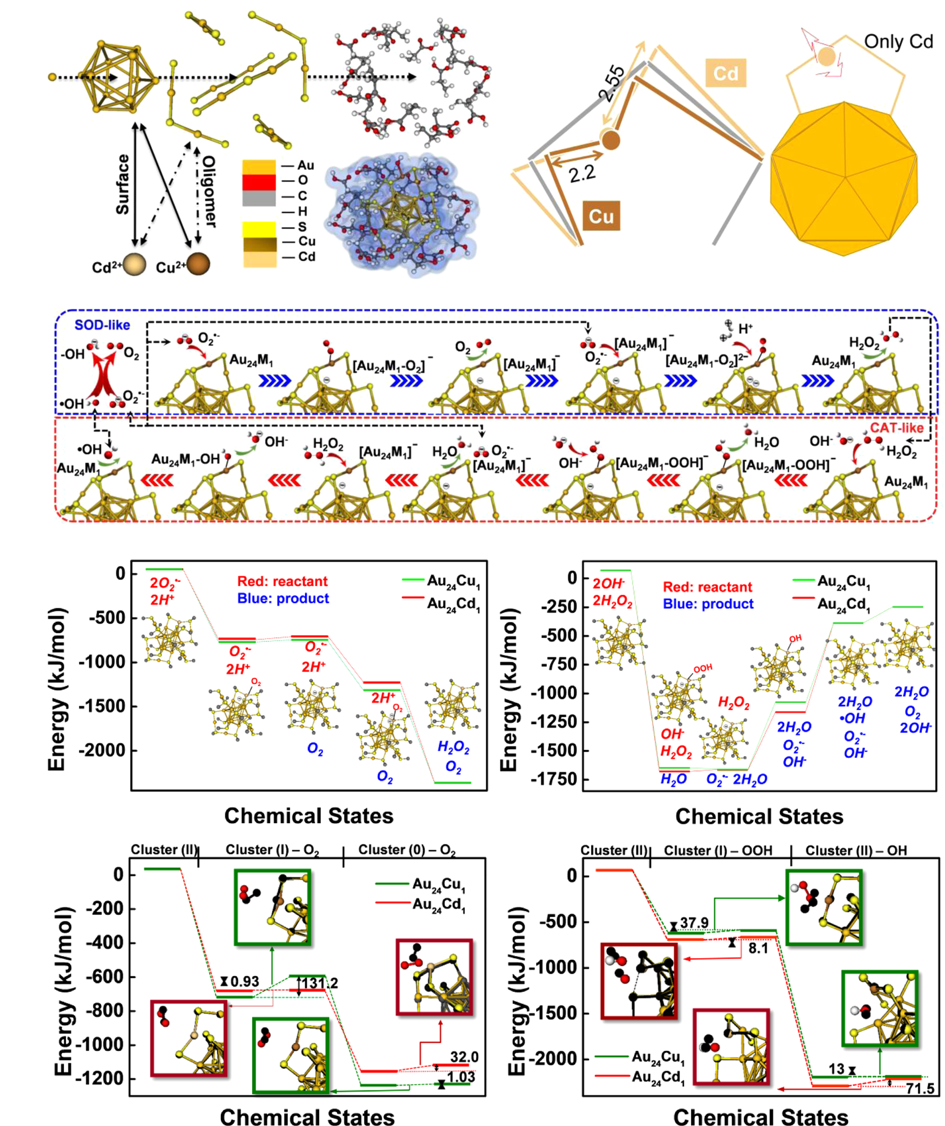
Calculation
Based on first principles calculation, including the following directions:
1. Simulation of structure and optical properties of metal-organic nanoclusters based on Density functional theory (DFT) and Time-dependent density functional theory (TDDFT). Simulation of infrared spectra of metal and metallic compound clusters.
2. Study on mechanism of catalytic reaction of the nanozymes.
3. The development and simulation of new materials based on the combination of machine learning (ML) algorithm and first principles. Especially the exploration of the combination of reinforcement learning (RL) and quantum theory.